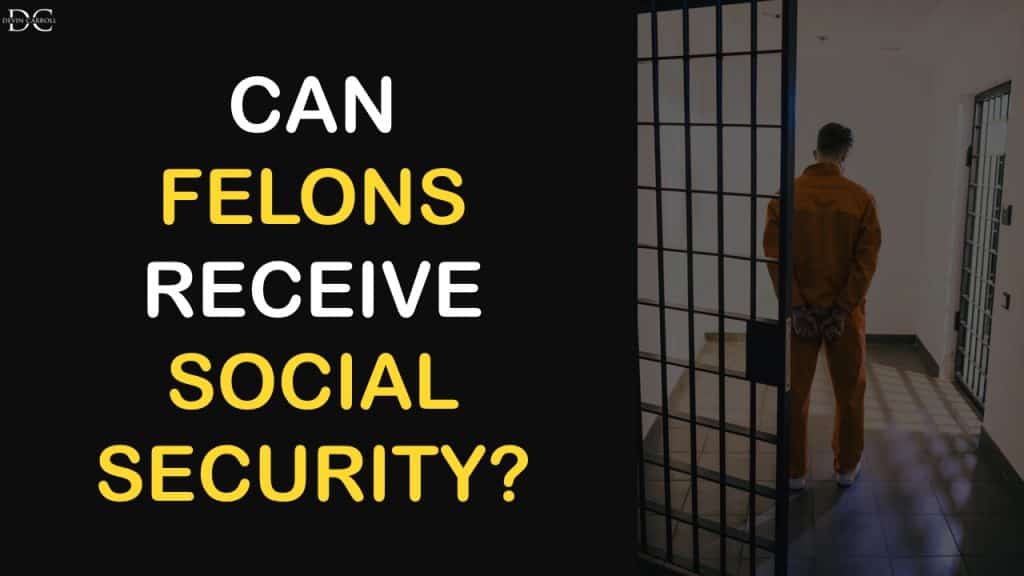
It’s no secret that Social Security is not the easiest system to understand. A maze of complex and complicated rules make it very hard to understand what is and isn’t allowed, and there are a number of hoops everyone has to jump through to ensure they get their benefits in the right amount.
Another not-so-secret fact about the system? It’s plagued with problems, the biggest of which may be the fact that the Social Security Administration’s trust funds will run out of money around 2035 unless someone finds a fix — and quick.
Considering this, it’s little wonder that people are quick to take issue with anything about Social Security that seems to indicate that someone is getting more benefits than they should. After all, anyone receiving income from Social Security is pulling from a very finite pool of resources.
The more money that goes to people who shouldn’t be receiving it means less for people who truly need it.
So when it comes to people with felony convictions who receive Social Security checks, it’s little wonder people get very fired up about this topic. But there’s also a lot of misinformation floating around about this topic, so let’s set the record straight about whether felons have a right to Social Security or not.
A Felony Conviction Does Not Automatically Disqualify Someone for Social Security
Not long ago, someone commented that the Social Security system wouldn’t be in such trouble if we didn’t have prisons full of people collecting disability and retirement benefits.
While I have a lot of content, in the form of both blog posts and videos on my YouTube channel, dedicated to breaking down and explaining the complex rules around Social Security, that comment made me realize that I’ve never gone into detail on whether or not someone with a felony conviction can receive benefits.
Here’s how this works: a felony conviction alone does not turn off your Social Security benefits. But an individual cannot receive benefits while imprisoned for more than 30 days for that conviction.
That detail is important! It means that if someone is arrested for a crime, and spends 90 days in county jail waiting on their trial, their benefits will continue. In order for the benefits to be suspended, they must be convicted and imprisoned for more than 30 days.
The Rules Around Medicare and Other Benefits for Imprisoned Individuals
While we’re clearing up the misinformation around whether or not convicted felons serving their sentences for their crimes are eligible for benefits, let’s look at a few other important points that most people don’t have the facts on.
If someone is on Medicare when they go to prison, their Social Security benefits will stop. The automated payments to Medicare Part B stop, as well — but those premiums are still due and payable.
If an individual does not pay their Part B premiums, then their Medicare Part B coverage will discontinue. That person would then have to reapply for benefits during an open enrollment period. The result for that person would most likely be a much higher Part B premium.
The other interesting note is with regards to spousal and childrens’ benefits. The rules are fairly clear that if a spouse or child is receiving benefits from the work of an individual who is incarcerated, that benefit will continue.
Keep in mind that before a spouse or child can receive a benefit from another work record, the individual who owns that record has to file first. If someone is in prison when they first become eligible to file, then they can’t actually take that action — and if they can’t file, then their spouses and children can’t receive their benefit.
What’s Your Take on This Topic?
It’s easy to hear rumors like the one that a bunch of felons are sitting around collecting Social Security, and feel worried or concerned over whether that’s completely true. After all, Social Security is in some degree of trouble because funds will run out unless new rules or regulations go into effect soon.
But I ask that you really think this one through. Some people believe that if an individual is being provided housing and food by the government at taxpayer expense, they shouldn’t be able to get any kind of Social Security benefit on top of that.
But you can consider this from another perspective, too. Some people say that if a prisoner worked for their entire life and contributed to the system, the government shouldn’t be able to seize any portion of that earned benefit.
Questions?
If you still have questions, you could leave a comment below, but what may be an even greater help is to join my FREE Facebook members group. It’s very active and has some really smart people who love to answer any questions you may have about Social Security. From time to time I’ll even drop in to add my thoughts, too. Also…if you haven’t already, you should join the 100,000+ subscribers on my YouTube channel!
One last thing, be sure to get your FREE copy of my Social Security Cheat Sheet. This is where I took the most important rules and things to know from the 100,000 page Social Security website and condensed it down to just ONE PAGE! Get your FREE copy here.

My husband was getting social security disability when he got incarcerated. we been married 25 years i havnt been able to work for 10 years im 51 not recieving any benefits and this has left me with nothing to live on and struggling is there anything. Im eligiable for.